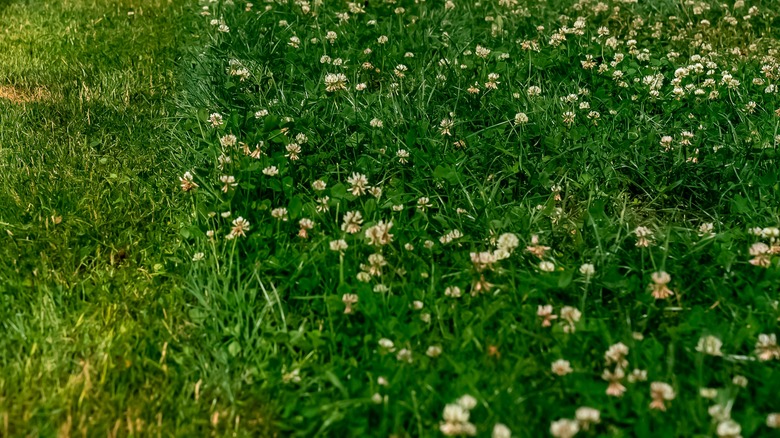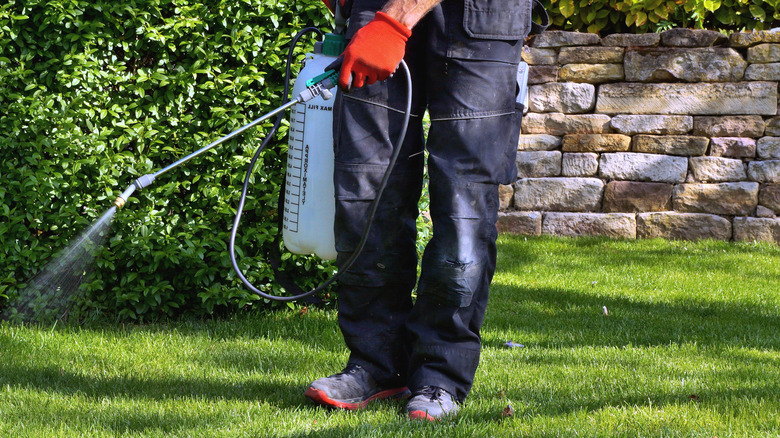Is Vinegar The Secret Weapon To Get Rid Of Clover From Lawns? What To Know Before Trying
We may receive a commission on purchases made from links.
Clover (Trifolium repens) is an herbaceous weed that pops up in many lawns, and if you want to eradicate it, you might look for herbicides. One common natural ingredient some homeowners use to get rid of clover is vinegar. But is it the secret ingredient you need? Yes and no. Vinegar does have the ability to kill clover, but there are limitations. Lawn care experts recommend you use horticultural vinegar, not the household vinegar found in your local grocery store. The process isn't without risks either, because it's a non-selective herbicide, meaning it can damage other plants it touches. It's also as effective as other ways to get rid of weeds, and as a perennial, clover can be tougher to kill.
While distilled white vinegar has multiple uses in the home, it's not as powerful as horticultural vinegar, which typically features 20% to 30% acetic acid. Household vinegar features only 5%. Because of its strong acidic nature, horticultural vinegar is commonly used as a weed killer to zap the moisture out of the plants by breaking down their cell walls. It's most effective when sprayed on young leaves and plants without deep roots. As a contact herbicide, it requires multiple applications, which can increase the risk of killing nearby plants. However, if you have the time and careful attention, and don't mind some of your grass potentially dying, you can use it to create a vinegar-based weed killer for clover.
Using vinegar to kill clover in your lawn
When handling horticultural vinegar, it's important you use proper protection for your eyes and skin, as the acid is very strong. You can dilute it for application or apply it at its original concentration. Start with a gallon of horticultural vinegar, such as Natural Elements 30% Vinegar, and pour it into a clean spray bottle. You can also add 2 tablespoons of dish soap, such as Dawn, if desired, then shake well. The soap will act as a surfactant and help the vinegar stay on the clover's leaves after application.
You should spray your vinegar directly on the clover's leaves only on sunny, warm days with little to no wind. Take care to avoid spraying the grass, as it will also die. The herbicide will quickly wash away in rain, so avoid spraying on days with rain forecast. You should also avoid running your sprinkler or irrigation system after application to really let the vinegar take effect. The dehydration of most weeds typically takes around 24 hours, but for really stubborn patches of clover, prepare for reapplication every two weeks. After the clover dries out and dies, remove it, then reseed your lawn to fill in the spots left behind.

